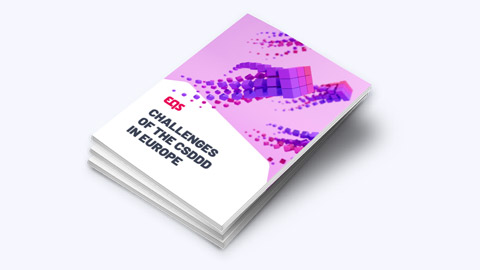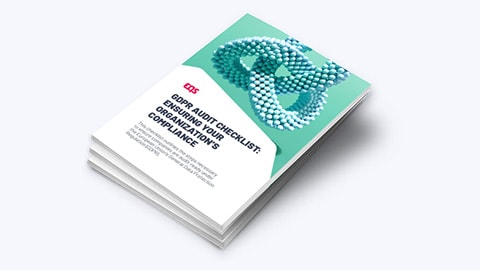Public Trust in Business: Why It Matters and Where It’s Lacking
Trust in business and employers varies dramatically between countries.

Although many business leaders have still failed to grasp it, trust has become one of the most powerful forms of corporate capital available to organisations today. Whether it’s a company’s employees or its customers, high levels of trust are the true business currency. They hold relationships together, breed confidence, attract investment and forge long-lasting reputations. According to Edelman’s most recent Trust Barometer, the level of trust in business varies dramatically around the world and it’s actually eroding in many strong economies.
Why trust is crucial in business
Having a good product or service that sells well is one aspect of running a successful business but building and maintaining trust is quite another. This is backed up by numerous studies. For example, in 2016, PwC reported that 55% of CEOs considered a lack of trust a threat to their organisation’s growth. Harvard Business Review research also found that workers in companies with high levels of trust reported 106% greater energy in the office, 76% greater engagement and 50% more productivity than staff at organisations with low levels of trust.
For most companies, instilling faith in both the employee and the customer base takes a massive amount of work that can last years. For organisations operating with a culture of honesty and transparency, however, trust tends to come naturally. So does success.
The global business trust disparity
Earlier this year, Edelman released its Trust Barometer which gauges trust levels across a range of institutions such as government, NGOs, the media, health authorities and business. Now in its 22nd year, the research polled 36,000 respondents across 28 different countries. Focusing on business, Edelman found that trust both declined and gained in 11 out of 27 countries while it remained the same in a single instance (Nigeria was excluded from this question).
Trust is higher in countries that experienced meteoric economic progress over the past two to three decades. Not only that, levels of trust among the public are still rising significantly year-on-year in those markets. China had the highest trust in business out of all countries polled at 84% and it experienced a 14-percentage point gain between 2021 and 2022. Indonesia came second with 81% and it was followed by India and the UAE with 79% and 78%, respectively. Saudi Arabia rounded off the top 5 with 74%.
At the opposite end of the scale, trust in business was lowest in Russia at just 34%, a figure that remains unchanged since the last edition of the barometer. It should not come as too much of a surprise given Russia’s reputation for systematic corruption underpinned by power, wealth and a network of notorious oligarchs. What may be more surprising are the other countries where less than 50% of respondents trusted business – South Korea (43%), Japan (48%), Germany (48%), the United States (49%) and the United Kingdom (49%).
This pattern can be attributed to a vicious cycle of mistrust across many institutions, particularly the government and the media. Business has been expected to take the lead on a range of societal problems and it has fallen short addressing issues such as climate change, economic inequality and workforce reskilling. It is also necessary for businesses to work with other institutions to tackle societal issues but there has been a lack of collective effort towards fostering innovation and making an impact.
The public are also increasingly advocating for brands based on their beliefs and values. This has also had an influence on where people are choosing to work and how they invest their money. Despite the global trust disparity, business remains the most trusted institution in the Trust Barometer at 61%, ahead of NGOs at 59%, the government at 52% and the media at 50%.

Where workers trust their employers
When workers have a lack of trust in their employer, it can lead to low morale, poor communication, disorganisation, complacency and the loss of sales, along with a whole host of other problems. On the other hand, as can be seen from the Harvard Business Review research, a company fostering a culture of honesty and integrity is likely to have a high level of trust whereby employees thrive in an honest environment of mutual respect. If an employee feels proud of the organisation, he/she is more likely to go above and beyond while staff turnover tends to be far lower.
As in the case of business, Edelman found that trust in employers varies greatly by country. Indonesia had the highest levels of worker trust in employers out of any country at 91%, closely followed by India with 90% and China with 89%. Germany, the United States, the United Kingdom, Australia and Canada all had relatively high trust levels between 70% and 80%.
The lowest level of trust in employers was found in South Korea at just 53%. South Korea has had a military-like corporate culture in place for years and this is now being challenged by a new generation intent on reform. Edelman’s findings represent either a huge opportunity for South Korean employers to re-engage with and manage new expectations or a considerable risk if no action is taken.

The trust-building toolbox
The importance of an open and honest corporate culture cannot be understated. Honesty and transparency breeds trust and forges stronger relationships with employees, customers, suppliers and partners. This helps an organisation attract and retain talent, particularly when senior leadership is fully committed and leads by example. Effective communication is an important tool in building trust within an organisation and it is important for a commitment to be made towards open, honest and frequent conversation that dispels rumours and negativity.
It is also essential for an organisation to be upfront and honest about the values it stands for and, of course, to practice them in reality. Actions speak louder than words and implementing measures such as ethical supply chain management or a company whistleblowing policy can have a far-reaching impact. The latter demonstrates a commitment to listen to and act upon employee concerns as well as a desire to create a safe working environment founded on trust.
Conclusion
Edelman’s findings reveal that while the public remains sceptical about business as an institution dealing with key societal problems, strong majorities in most countries do at least trust their employer. There is still work to be done, however, particularly in South Korea and Japan where fewer than 6-in-10 workers trust their organisation. There is also room for improvement in many other countries such as Germany and the US where more than a quarter of workers did not indicate that they have faith in their employer.

Key principles of establishing an effective ABC programme





